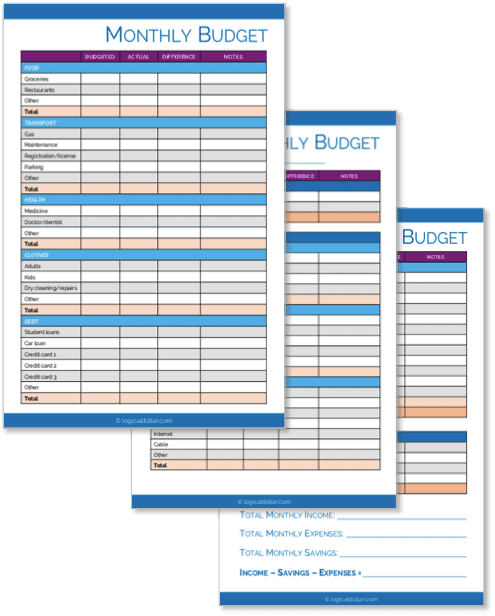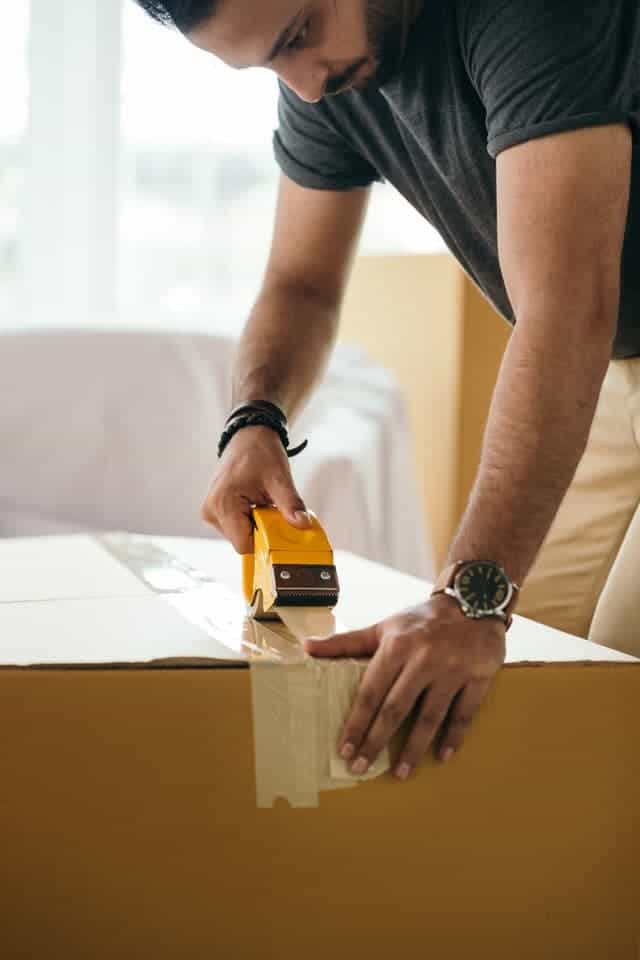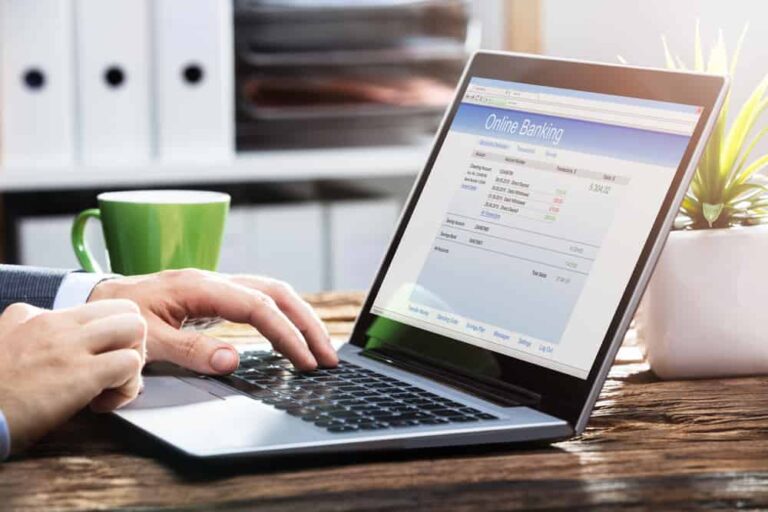Maybe your family or current housemates are driving you nuts or you simply want your own space. Or perhaps there’s a more serious reason for wanting to get away.
Whichever it is, realizing “I need to move out but can’t afford it!” can be incredibly frustrating.
Fortunately, there are some steps you can take if you can’t afford to move out at the moment that will change that for you in the not-too-distant future.
Like any financial goal, it will take some commitment. But, luckily, there are some things you can do to make it much more likely that you’ll be able to move out sooner rather than later.
I need to move out but I can’t afford it! What do I do?
1. Consider why you need to move out
When working out what to do if you can’t afford to move out, it’s important to start by figuring out your reason for actually wanting to do so. After all, this is going to have a huge impact on your timeline for doing this.
For example, if you’ve decided that you need to move out of your parents’ house ASAP simply because you want your own space, then you can perhaps be a bit more flexible on your target date for moving out.
If that’s you, set a deadline in your head for when you’d like to move out and continue down the list of steps to take in this article.

However, if you’re searching for how you can get out of a toxic home with no money because you or someone you live with (who would move out with you) is at risk of physical or mental harm, then it’s critically important that you accelerate this process.
In this case, you can work out the long term financial aspects later. Your priority here is having just enough money to get out.
If this sounds like you and you need to move out but can’t afford it, Reddit has some great tips. Depending on the urgency of your situation, finding a local emergency shelter or transitional housing may also help. This site is a good place to start.
2. Figure out exactly how much you need to move out and afford it
Once you’ve figured out roughly how long you’d like to wait before moving out, you’ll need to work out how much money you need.
Setting a goal like this is incredibly important for helping you to achieve this, as it will give you a clear objective to work towards.
That said, the exact amount you need to be able to afford to move out is going to depend on a ton of variables. This means you’re going to have to do some research to figure out your own personal goal amount when it comes to your expected expenses when renting.
Some important factors to consider include:
- How much you’re willing to spend on rent – This is going to depend on things like where you plan to live, the type of home you plan to live in (house? Studio apartment? Even couch surfing, even just for a while?) and whether or not you’ll have housemates (highly recommended if you’re on a budget). Start by checking local rental listings to see the kinds of numbers you may be working with.
- Your deposit – Most rentals will require you to pay several months’ worth of rent upfront and some even require you to add the first and last month on top of that. This can be a large expense, especially when you know you won’t see the money again until you move out, so be prepared.
- Utilities – Electricity, gas, internet, water…they can all add up and the costs will vary depending on where you live. In some places, renters won’t be liable for all of these, but it’s important to have a good idea of these monthly costs in your area so you can budget for them.
- Renter’s insurance – Not a necessity but often a good idea to protect you in the event that your rental is damaged.
- Living costs – This is the one that most people underestimate, especially if you haven’t lived out of home before so haven’t yet faced the joy of a grocery bill. As a starting point for your budget here, consider talking to friends who already live where you plan to move to, as they’ll be able to give a realistic idea of the kinds of expenses you’re looking at in your day-to-day life.
- Moving expenses – This can be completely free if you’re planning to move out in the same city you currently live in and can get some friends to help you. Alternatively, if you’re looking to ship your stuff across the country, you’re looking at a much heftier bill.
- Emergency fund – No one ever expects or likes an unwelcome financial surprise but, unfortunately, they do happen. It’s for this reason that everyone should have an emergency fund – but especially anyone who’s now paying for themselves, just to ensure you’re covered if something does happen.
Related: 15 Incredible Debt Snowball Worksheets to Get Out of Debt
3. Create a budget
Congratulations, you now have all the information you need to start a budget!
Your main reason for doing this is to make sure you’re setting aside some money each month. That way, even though you perhaps can’t afford to move out now, you should be able to do so in the coming months.
However, having a budget also has the added bonus of helping you to see whether you’ll be able to afford to live once you do move out based on your current financial situation.
Working out how much you need to set aside each month is pretty simple:
- Take that target move out date and calculate how many months away it is
- Look at how much money you need to afford to move out and divide it by the number of months you have to reach that goal
The amount you’ll get is how much you need to save – easy! (…right?)
To get started, check out our free budget download at the link below.

MANAGE YOUR MONEY LIKE A BOSS
Managing your money effectively can literally change your life. And starting a budget using our budget planner is the first step towards you doing just that.
Get it free for a limited time!
You’ll also join our mailing list to get updates on how to manage your money – unsubscribe at any time at the end of each email.
4. Track your spending
Now that you have a personal financial plan, tracking your spending is going to be critical to achieving it.
After all, this is the only way to know exactly where every dollar is going so you know it’s being put to good use – and not “accidentally” being spent at Starbucks each month.
This is easy to do with the downloadable budget that we just mentioned, as one of the columns helps you to compare your targeted spending for each expense against your actual spending.
But another way to do this is to automate it with an app that tracks your spending.
I always recommend Personal Capital for this. It’s a completely free app that can automatically track your spending, show you your overall financial situation and give you personalized tips on how to manage your money better.
Personal Capital
Our pick: Best budgeting app
Easily our choice for the best app to help you manage your money better.
Create a budget, track your spending automatically, receive personalized advice, get alerts about hidden fees and a ton more – and it’s all free.
Related: 10 Best Personal Finance Podcasts for Beginners
5. Start looking for free furniture and other items
When you need to move out but can’t afford it, one way to speed up the process of actually having enough money is to reduce how much money you actually need to do this.
And a simple solution here is to turn to the many completely legit options that are out there for getting free stuff.
That is, thanks to the internet, it’s now easier than ever to take advantage of the many ways people give away things that they don’t want any more – many of which are still perfectly usable!

Options include:
- Search sites like Craigslist and Facebook Marketplace for people trying to get rid of things, often because they’re moving out themselves and don’t want to take furniture with them.
- Free Your Stuff groups are particularly big on Facebook. Find some that are specific to your local area for people looking to give away their things.
- Check with your local council or similar authority for when your area’s next “dump your stuff” day is scheduled. A not-so-secret hint is to go to any wealthier areas near you a day or so before this stuff is collected, as a lot of the things you’ll find are in incredible condition – and they’re completely free!
Related: 17 Best Financial Planning Quotes to Inspire Your Money Makeover
What essential items do I need for my first apartment?
This is going to depend on the kind of place you’re moving to. For example, if you’re moving in with a friend who already lives out of home, they’ll probably have a lot of the basics.
However, some essential items you should have at the very least include:
- One set of sheets
- A mattress (you can get the bedframe later, no harm in sleeping on a mattress on the floor for now)
- A pillow and a duvet
- A towel
- Basic toiletries (shampoo, soap and toothpaste)
- A pan for cooking – you may be able to find this secondhand although this pan is an incredible deal
- A plate set – again, you’ll likely be able to find this secondhand, even if they don’t all match. That said, if you’d prefer to just buy a set and be done with it, this plate set has everything you need for a seriously great price.
- Cutlery – I’d recommend checking a secondhand shop for these as you can usually find these pieces for a few cents each.
- Cleaning materials – you don’t need anything fancy here and you can probably wait until you actually move in to get these, but it is something to keep in mind.
6. Get a job (or see how to increase your income)
While it’s theoretically feasible to live without a job, if you don’t already have one, it’s time to address that. After all, if you need to move out but can’t afford it, there’s no way you’ll change that if you don’t have any money coming in.
This will also be important when actually finding a place to rent, especially if your name will be on the lease. Most landlords will want proof of income so if you can show that you’ve held a job with a consistent income for even a little while, you’ll be much more likely to be chosen for that place you had in mind.
And if you do already have a job but still can’t afford to move out, you need to look into how you can increase your income.
Whether that’s taking on extra hours at work, looking for a second job or starting a side hustle, boosting your income – even if it’s just temporarily – will help you really speed up the process of having enough money to be able to move out.
7. Stick with it
It can definitely be frustrating if you want to do something but just don’t have the money for it yet.
But stick with it, as step by step, you’ll find yourself getting closer to your goal.
And once you do have the money you need, it will make moving out day so much sweeter.
(It’s also good practice for when you do actually move out and need to keep paying for rent and all your other living expenses – yep, the fun never ends!)
How do I know if I’m ready to move out?
You’ll know if you’re ready to move out if you’ve done the math and calculated that you have saved up enough money to be able to afford all of the expenses involved in this. You should also check that you’re earning enough money going forward to be able to continue to pay for living expenses, including rent.
Of course, moving out isn’t simply a financial decision. Most of us decide we’re ready to move out based on either needing our own space or because of an opportunity that’s come up in another city.
But finances are a huge part of this and, simply put, if you can’t afford it, you’re not going anywhere.

How can I move with no money?
Unless someone is paying for you, it will be basically impossible to move with no money. Not only will you not be able to afford the cost of moving or your living expenses, but most landlords need to see proof of income before agreeing to let you rent somewhere.
This is why it’s important to get your finances in order before moving out, to cover both your initial moving expenses and your ongoing living costs. By following the steps in this article though, including saving enough money, budgeting effectively and having proof of income, you’ll be able to have enough money to move out in no time.
On the other hand, if you plan to move out with a partner who will cover all your expenses, make sure you both have an open and frank discussion on how you’ll deal with finances going forward. It’s fine to have a money imbalance in relationships as long as both people are clear on what this means. For example, is it a short term thing until you find a job or will it be long term, in which case you may be expected to, say, contribute more around the house?
Is $5000 enough to move out?
The amount of money you’ll need to move out will depend on where you plan to live and your living expenses, but $5,000 can certainly be enough to move out. That said, it’s important that this includes both initial moving costs and some ongoing costs, especially if you won’t have a steady income straight away.
Standard advice is to have at least three months of living expenses on hand as an emergency fund, which include things like rent, utilities, food and other essentials.
You should also factor in things like your rental deposit, the first month of rent and anything you’ll need to buy to move into your new place.
Whether or not $5,000 will be enough to cover this will depend on your personal circumstances, so make sure you do the math.

Final thoughts on what to do if you can’t afford to move out
When it all boils down to it, the solution for what to do if you need to move out but can’t afford it is the same as most financial goals: work out how much you need and reduce your spending or increase your income until you have that amount.
Of course, that can be easier said than done, especially with living expenses rapidly increasing in many places.
At the same time, as someone who wanted to move out ASAP, I can tell you that it’s definitely worth it. Sure, you’ll have to keep an eye on your budget and you may not be moving out to your dream place at first.
But having your own space is, frankly, amazing. So if you can make it work financially and stick with managing your money over the long term, you won’t regret it.






